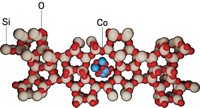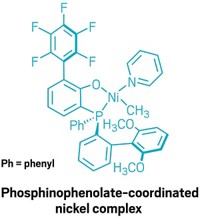Advertisement
Grab your lab coat. Let's get started
Welcome!
Welcome!
Create an account below to get 6 C&EN articles per month, receive newsletters and more - all free.
It seems this is your first time logging in online. Please enter the following information to continue.
As an ACS member you automatically get access to this site. All we need is few more details to create your reading experience.
Not you? Sign in with a different account.
Not you? Sign in with a different account.
ERROR 1
ERROR 1
ERROR 2
ERROR 2
ERROR 2
ERROR 2
ERROR 2
Password and Confirm password must match.
If you have an ACS member number, please enter it here so we can link this account to your membership. (optional)
ERROR 2
ACS values your privacy. By submitting your information, you are gaining access to C&EN and subscribing to our weekly newsletter. We use the information you provide to make your reading experience better, and we will never sell your data to third party members.
Materials
Polymers May Chemically Degrade In The Ocean
Lab studies show polystyrene releases styrene monomers at temperatures similar to those at the ocean surface
by Celia Henry Arnaud
August 24, 2009
| A version of this story appeared in
Volume 87, Issue 34

Little is known about the chemical decomposition of the many tons of plastic debris floating in the world’s ocean. Scientists have assumed that this trash physically degrades but remains chemically intact. That assumption may not be a good one, according to researchers in Japan. Katsuhiko Saido of Nihon University, in Chiba; Yoichi Kodera of the National Institute of Advanced Industrial Science & Technology, in Tsukuba; and coworkers analyzed sand and water samples from coastal areas around the world and found degradation products from a variety of polymers. To understand whether the polymers could produce such compounds under conditions similar to those in the ocean, the researchers performed laboratory studies of the thermal degradation of polymer mixtures over a wide temperature range. In those experiments, polystyrene released styrene monomers, dimers, and trimers at temperatures as low as 30 °C, which is similar to temperatures at the ocean surface. Such degradation is more likely to happen in the harsher environment near the coast than in the open ocean, Kodera said.






Join the conversation
Contact the reporter
Submit a Letter to the Editor for publication
Engage with us on Twitter